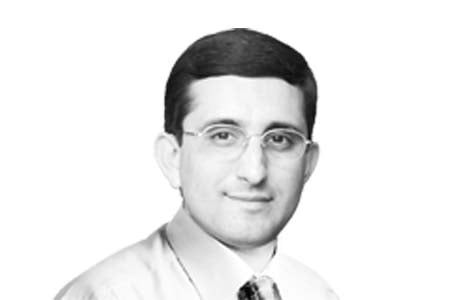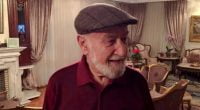Train, equip and persecute?

Date posted: January 23, 2015
It’s never easy to find diplomats who speak publicly without beating around the bush and concealing facts, even if they are retired. Exceptions make especially us journalists happy. Former United States Ambassador to Turkey Francis Ricciardone is one of them.
Ambassador Ricciardone does not occasionally refrain from speaking without self-censorship, despite the fact that he recently left his post in Turkey. Thanks to the ambassador’s latest revelations, we have learned a lot about the US stance on Turkey and the Hizmet movement.
The ambassador’s speech at a full-day conference held by the Transatlantic Academy last Wednesday was indicative of how the American side is frustrated and fed up with Ankara’s obsession with Hizmet and Fethullah Gülen. Here is what Ricciardone said to Turkish government officials who beat a path to his door claiming that Hizmet has formed a state within the state and asked the US to go after them: “All right, but where is the crime? In your terms, or in our terms.”
It’s evident from the seasoned ambassador’s remarks that Americans have been patiently listening to the Turkish government’s persistent requests for the sake of alliance and doing their best to help, but Ankara failed to offer any evidence.
“Show me any evidence of crimes in your law or in ours. Are you suggesting any violence anywhere? Any violent crime or another crime? Money laundering, people trafficking, visa problem, anything?” Ricciardone would say to them, but “they certainly never suggest [one].”
Recalling the open-door policy of the embassy towards all law-abiding citizens of Turkey, Ricciardone told the head of various agencies in Turkey: “Look, I see these people. They come to me. Are they criminals? … Are you saying these Turkish citizens are criminals that should not be coming to my country or my home? No? Then we are going to keep seeing them.”
Hizmet is no terrorist
It seems Ankara, which views the Hizmet movement as a “national security threat,” has relied on its alliance with US, hoping its allegations will be taken seriously, but they were disappointed. “It’s hard for us intellectually to see how a movement, a religious movement that we respect as doing good things for Turkish-American relations heretofore, how could that be a threat to the state?” the ambassador said.
Even if the movement has “penetrated” the state in one way or another, this alone does not constitute a crime, he argues. As for efforts to link Hizmet with terrorism, Ricciardone echoes Washington’s position in a clear manner: “The US government does not regard the Hizmet movement as violent terrorists. Period. We don’t.”
Ambassador Ricciardone does not necessarily think the Hizmet movement is perfect. For example, he has criticized the movement’s attitude during the Sledgehammer coup case against military officers and alleged influence in the judiciary. On the other hand, he rules out that the US would comply with the Turkish government’s unlawful demands.
In an interview with the pro-government Sabah newspaper, current US Ambassador John Bass depicted allegations about Hizmet as “serious.” Those who want to capitalize on that are wrong. In line with diplomatic customs, acting ambassadors usually do not publicly say things that might be deemed offensive to host governments.
On the contrary, most of the time they try to please them. Of course, Ambassador Bass was not going to say, “Stop keeping us busy with this nonsense” to the microphone. I think his remarks in official meetings are not much different from those of his predecessor, since this is the position of the Barack Obama administration, not the personal views of the ambassadors.
Ambassador Ricciardone made some other important points on Turkey. In sum, he believes the Turkish-American relations are not based on “shared values,” given the latest negative developments on democracy and freedoms. On the other hand, he also explained why the US would try to establish a “reasonable” dialogue even with coup-maker generals. (So they can live with President Recep Tayyip Erdoğan as well.) He also said Turkey and the US are “stuck” with each other. His explanation for the lack of high-level US government reaction to an increasing threat to media freedoms: to “stay engaged” with people in the Turkish government. We actually owe a big thanks to Mr. Ricciardone for helping us see the parameters of US policy vis-à-vis Turkey so clearly.
Interests-driven policy
So my analysis and projections based on what I’ve heard from Ambassador Ricciardone along with other sources in Washington is that US hopes for democracy in Turkey are very dim. It doesn’t see a light at the end of the tunnel under the current political and social conditions. It thinks Turkey might lose the next five or even 10 years due to the authoritarianism of the ruling party and incompetence of the opposition.
It prefers to pursue an interest-driven policy rather than increasing the tension in bilateral relations with a values-based policy. A weakened democracy will have a toll on Turkey’s added value, but its strategic importance will not diminish. In short, the US will not serve as an instrument for the repressive regime in the works, but it will not stand against it either.
Civic America will, of course, continue to press official America to defend democracy in Turkey. However, one should not dismiss Ankara’s ability to turn down Washington’s noise with strategic bribes. For example, the Obama administration is nowadays happy that Turkey will host a train-equip program for opponents of the Islamic State in Iraq and the Levant (ISIL). Our guys in Ankara most probably think equipping and donating more will earn them new licenses to persecute.
To sum up, as long as Turkey stays a strategic mine, the oppressed should not expect strong support from the US. In a way, it would be better if local dynamics outweigh foreign dynamics in the fight for democracy. At least you wouldn’t be indebted to anyone.
Source: Today's Zaman , January 21, 2015
Tags: Defamation of Hizmet | Hizmet (Gulen) movement | Turkey |
























